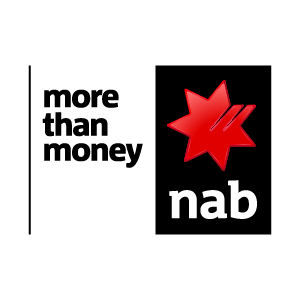7 Hacks That’ll Set You Up for Savings Success This Semester
Ball so hard.


No monthly card fees with a NAB Visa Debit Card.
Getting ahead of your various bills and expenses can seem impossible, especially when you’re a student. And yet there are people who manage to sock away cash, despite the high cost of living and studying in this country – how do they do it?
The truth is, there’s no one “trick” that’s going to make your savings go up overnight. In most cases, maximising savings is a matter of cutting back a little everywhere, and being consistent in those cut backs. You need to get creative in reducing your costs.
To help you get started, here are just a few ways you can downsize your expenses.
Make Use Of The Things You Already Own
In the era of material abundance, it’s easy to lose track of just how much stuff we have lying around. Going through it all and cataloguing it can be lucrative for several reasons.
First, you’ll probably find some useful things you completely forgot about.
Second, it will help you make sure you’re using all the clothes and accessories you own, rather than going out and buying new ones when you already have a backlog of untouched tops.
Third, unless it’s truly ruined, you can put the stuff you don’t want anymore on eBay, Gumtree or Facebook Marketplace, and get some cash for it. Definitely worth a spring clean.
Make Sure You’re Not Paying Card Fees
There’s nothing worse than paying fees just to spend your own money. Look closely at the fees and conditions of all your bank cards and accounts, and see exactly what you’re getting billed for. Then put those research skills to use and find out what the other banks are offering.
If you can find a more reasonable offer at a different institution, it might be worth making the switch.
Plan Your Meals And Groceries
Spur-of-the-moment purchases are the mortal enemy of savings, and few spurs are more enticing than a quick snack. But with a little planning, you won’t have to choose between money pains and hunger pains.
First, make it easier to avoid eating out by always having meals at home. You can accomplish this by cooking your meals in larger batches and freezing the leftovers.
Second, while all your meals should have a good protein source, you shouldn’t rely on meat or eggs alone to fill you up; that can get expensive. Bulk up your meals by adding lots of healthy veggies, as well as cheap standbys like rice or noodles. Add some tasty sauce you’re golden.
Third, always take a grocery list to the supermarket. Going without one all but guarantees you’ll spend more than you should.
And unless there’s a huge difference in quality, try to stick to home-brand.
Use Your Library
If you’re a bookworm or a cinephile, you can save big by feeding your hunger for fresh content at the uni library. It’s free, it’s easy, and if you’re into eBooks or audiobooks, it can even be done from home.
Hey, you’re going to be paying off that tuition for a while – might as well get some mileage out of it!
Drink More Water
Water isn’t just good for your physical and mental health – reducing stress and the chances of incurring headaches and migraines – it’s also an effective appetite suppressant. Drink more water and you’ll be less likely to eat your savings (something that becomes increasingly likely as the semester progresses and the stress mounts).
Whatever you do, stay away from bottled water. Per litre, it’s more expensive than petrol, and paying that much for something you can get at home for practically nothing is a colossal waste of money. For this reason, you might want to invest in a good drink bottle.
Use A Zero-Sum Budget
If you’re money’s burning a hole in your pocket, take it out of your pocket. And by “pocket” I mean your checking account.
Figure out how much money you need until your next pay, subtract it from your balance, and transfer the remainder to your savings account. This way, your extra cash has already been “saved,” and you only have immediate access to the money you actually need. This method is called zero-sum budgeting, and it’s a pretty painless way to get better at watching your spending.
Meet Up With Friends
Boredom and loneliness are a recipe for unplanned spending. Save yourself the temptation of eating out or indulging in some retail therapy by doing something inexpensive with friends. Movie nights at home or cooking as a group are great examples.
If you’re new to the area or just haven’t had a chance to mingle properly, try services like Meetup, where you can organise to meet a bunch of like-minded people with whom you can study, play sports, or just hang out.
—
Ready to rack up the savings? Get started with a NAB Visa Debit card, which has no monthly card fees and no ATM fees in Australia. Find out more here.